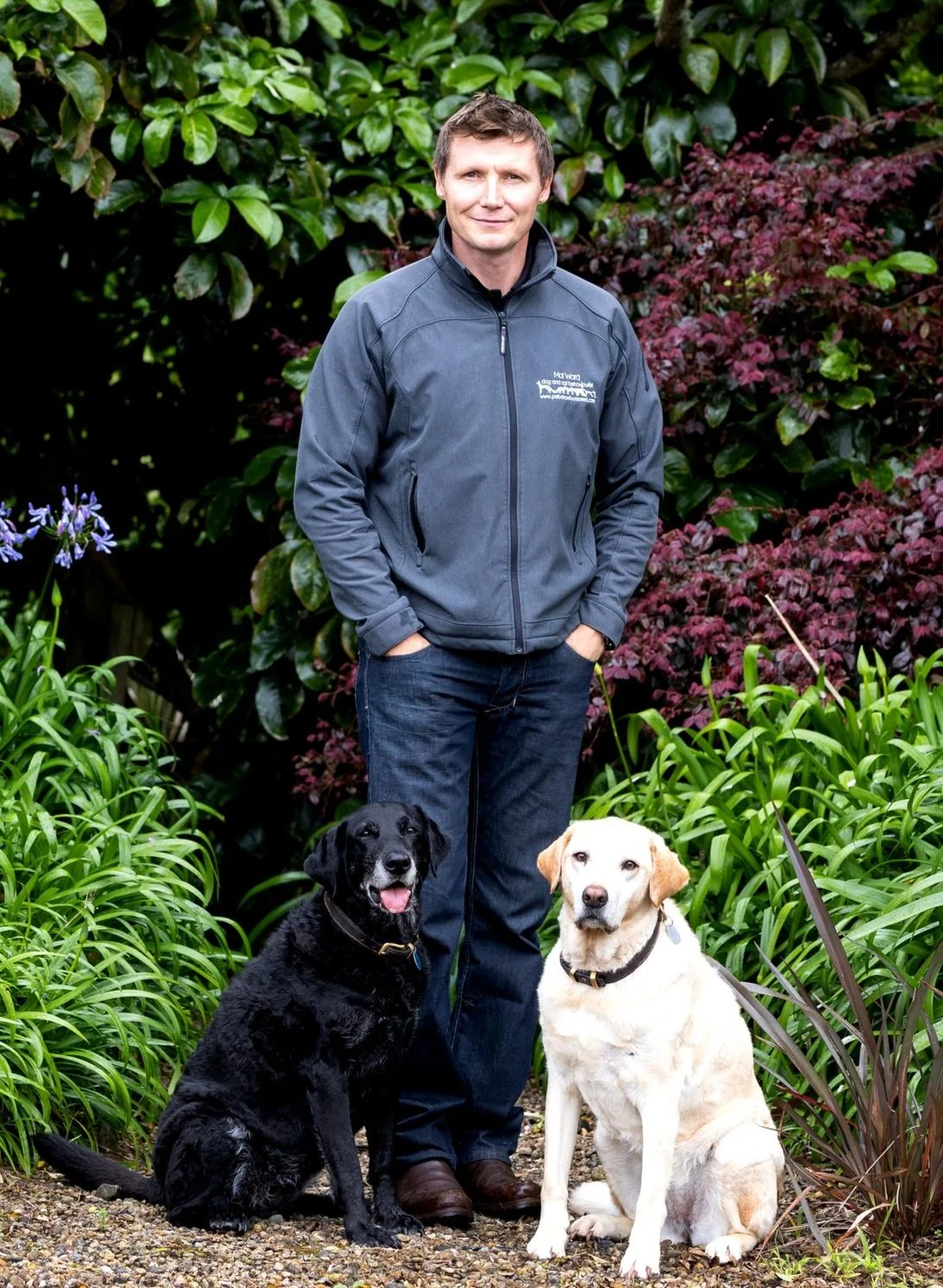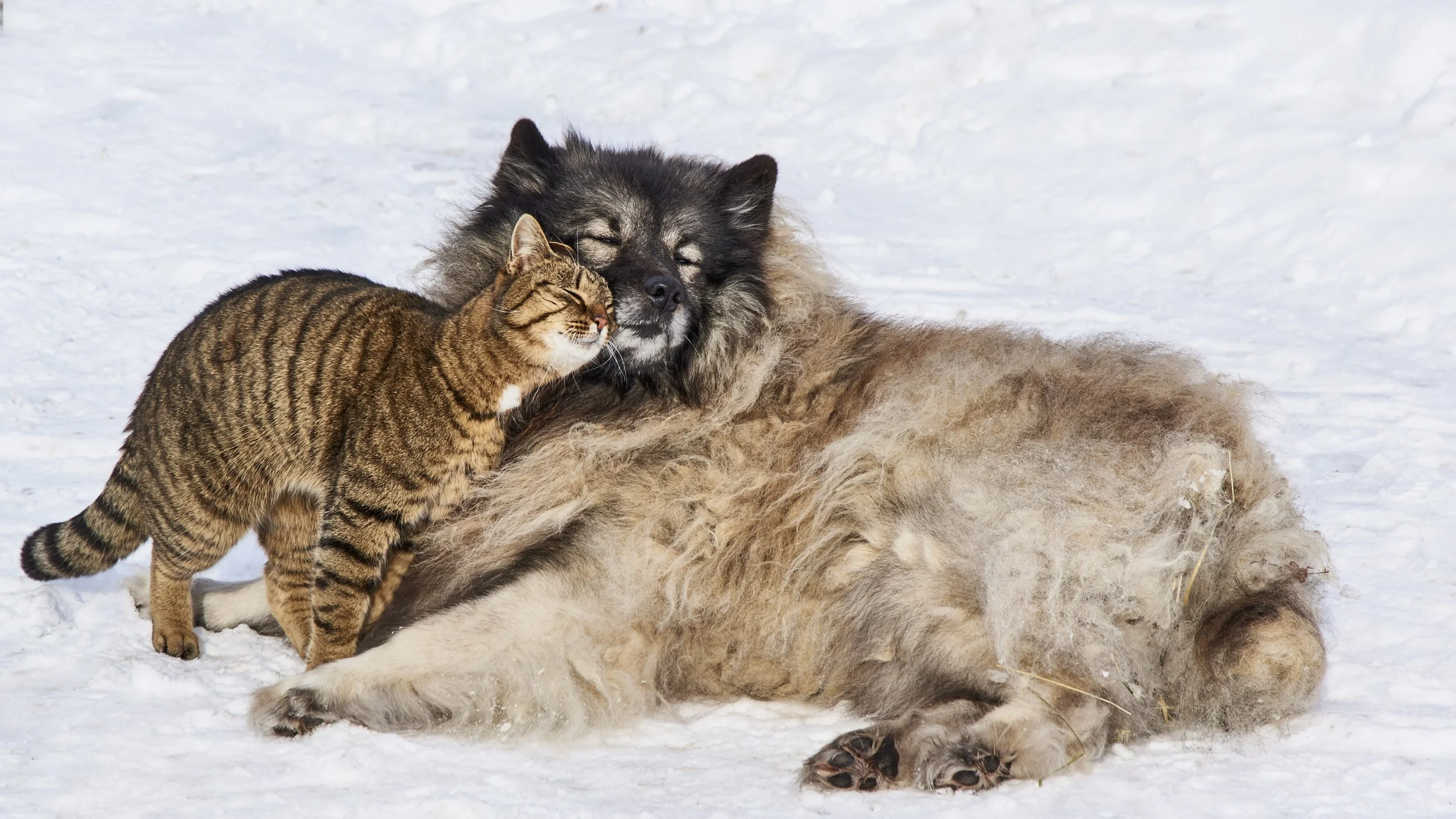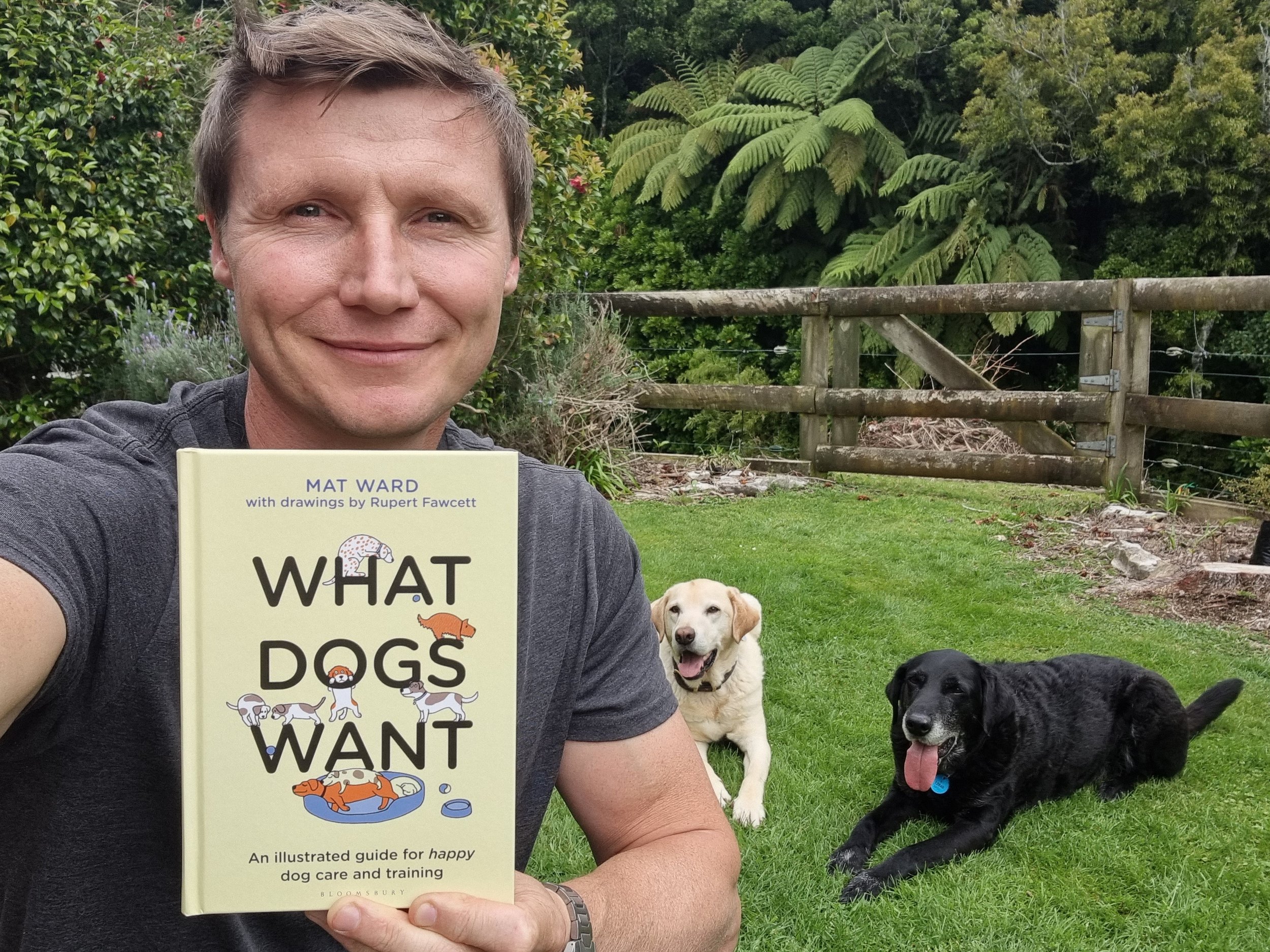Why Choose Me as Your Pet Behaviourist?
Because proven experience — backed by qualifications, accreditation, and real results — matters.
In the UK, anyone can call themselves a “behaviourist”, “trainer”, or “whisperer” — without formal training or experience.
But when your dog or cat’s behaviour is causing stress, frustration, or even heartbreak, you need more than promises. You need a qualified, experienced, science-based expert you can trust.
Unmatched Qualifications and Experience
I’m Mat Ward, a Certified Clinical Animal Behaviourist (CCAB) — the gold standard for animal behaviour professionals in the UK.
🎓 Bachelor of Science
🎓 Master of Veterinary Studies (First Class Honours in Companion Animal Behaviour)
🗓️ 26 years of experience
🕰️ 7200+ hours of one-on-one behaviour consultations with dogs, cats, and their people.
🐕 5000+ hours of practical hands-on animal training — dogs, cats, and other species.
Proven Results, Not Just Promises
My client feedback study shows high success rates and client satisfaction.
👉 Click here to see the resultsI’m trusted by over 130 veterinary clinics across Scotland to handle their most complex behaviour cases.
My clients often tell me: “You were our last hope — and you turned things around.”
Fully Accredited
🏅 Certificated Clinical Animal Behaviourist (CCAB) — accredited by the Association for the Study of Animal Behaviour (ASAB)
🏛 Full Member:
Association of Pet Behaviour Counsellors (APBC)
Fellowship of Animal Behaviour Clinicians (FABC)
📜 Registered Clinical Animal Behaviourist – Animal Behaviour and Training Council (ABTC)
🌍 Certified Dog & Cat Behaviour Consultant – International Association of Animal Behaviour Consultants (IAABC)
⚖️ Independently vetted by the UK Register of Expert Witnesses (specialist in dog behaviour)
Kind, Science-Backed, Judgment-Free Help
My approach is rooted in modern behavioural science, not outdated dominance models or punishment-based training.
That means:
No pain.
No fear.
No intimidation.
Just practical, effective methods — ones that support your pet’s emotional well-being and improve your life together.
And just as importantly — no judgment. I’m here to support you, not blame you.
Beware of Unqualified “Experts”
Some practitioners list memberships or short courses as “qualifications.” But real accreditation requires years of study, rigorous assessments, and proven clinical experience.
I only list my university degrees and CCAB accreditations — never misleading memberships.
If you're unsure who to trust, I’m happy to explain what to look for in a qualified behaviourist. This is an unregulated industry — your pet deserves the best.
Ready to Get Help From a Trusted Expert?
If you're dealing with difficult behaviours like aggression, reactivity, anxiety, or toileting issues, let's work together to create lasting change — with empathy and expertise.
Many pet insurance policies provide cover for my services.
My book - “What Dogs Want”
There’s so much information out there on dog behaviour and training. Everyone has an opinion — whether it’s the lady you meet on a dog walk or Uncle Bob. The internet’s rife with conflicting and confusing advice, and often my clients’ heads are spinning with all this information, and not sure how to sort the wheat from the chaff.
I wrote What Dogs Want to cut through the noise. It’s fun, accessible, and full of essential, science-based guidance for being a great dog guardian. Whether you’re 9 or 90, I’m confident you’ll come away with a clearer understanding of your dog — and how to help them thrive.
Mat's background
Early career: Since I was young I have been interested in two things: animals and science. After spending time as a teenager with a well-known pet behaviourist, I decided to make a career of working with problem pets. I wanted to base my understanding of animal behaviour and treatment techniques on both practical experience with animals, and scientific understanding.
BSc: In 1998 I completed a Bachelor of Science with a double major in psychology and zoology.
Hands-on experience: On completing this degree I started working with a well-known New Zealand behaviourist at his pet behaviour clinic in Auckland. Within six months I was responsible for all aspects of the "in-clinic" dog therapy service we offered (where problem dogs stayed with us for around three weeks).
Masters degree: After a year of this post-graduate practical experience I started a Master of Veterinary Studies degree (in animal behaviour not medicine). I completed this degree while working full time with problem dogs. My Masters' thesis examined two areas: 1) the efficacy of behaviour therapy for canine behaviour problems, and 2) the effect of early socialisation experience on later behaviour in dogs. I received first class honours for my Masters degree.
On completing of my Masters degree in 2003 I took over all consultancy aspects of our practice, as well as continuing to run the canine in-clinic program.
UK: At the end of 2006 I left New Zealand with my wife Tracey to travel. The UK is a world leader in the field of applied animal behaviour and welfare, so I wanted to explore the greater opportunities for specialist clinical animal behaviour conferences and other professional development opportunities.
APBC: In 2008 I submitted an application to the Association of Pet Behaviour Counsellors for full membership and was deemed by the APBC selection panel to have satisfied their rigorous selection criteria. In March 2009 I was elected by other full members of the APBC to the Committee as Treasurer, a position I held for seven years.
CCAB (ASAB): My application for accreditation as a Certificated Clinical Animal Behaviourist (CCAB) was approved in 2011 by the Accreditation Committee of the Association for the Study of Animal Behaviour. This independent certification for companion animal behaviourists demands the highest standards of experience and academic study.
CAB (ABTC): In 2014 I was registered as a Clinical Animal Behaviourist by the newly established Animal Behaviour & Training Council (ABTC).
TV: In 2015 I trained a dog to fly a plane for Sky1's "Dogs Might Fly".
Book: My book “What Dogs Want” was published in October 2021.
Training animals for film and TV
In New Zealand I also worked as a senior trainer and on-set coordinator for our animals-for-film business. This involved training a wide variety of species to perform various behaviours for feature films, TV commercials, and stills photography. I was the first person in the training team to implement bridging techniques such as clicker training to positively reinforce complex behaviours.
An example of the requirements of training for film is demonstrated in the apparently straightforward cat TV commercial shown at the bottom of this page. The filming of this shoot took a day, and required me to pre-train "Zep" to run, jump, sit, stay, watch, and immerse his arm shoulder-deep in water on command (the fish is computer animated). This may sound challenging enough, but is even harder when there is a film crew of 40 people on the set, and the action has to be completed exactly as requested by the director!
If you would like to see me training Zep for this commercial, as well as videos of me training a big black boar, cockatoo, border collie, the dogs for "Dogs Might Fly", and other animals click here.












